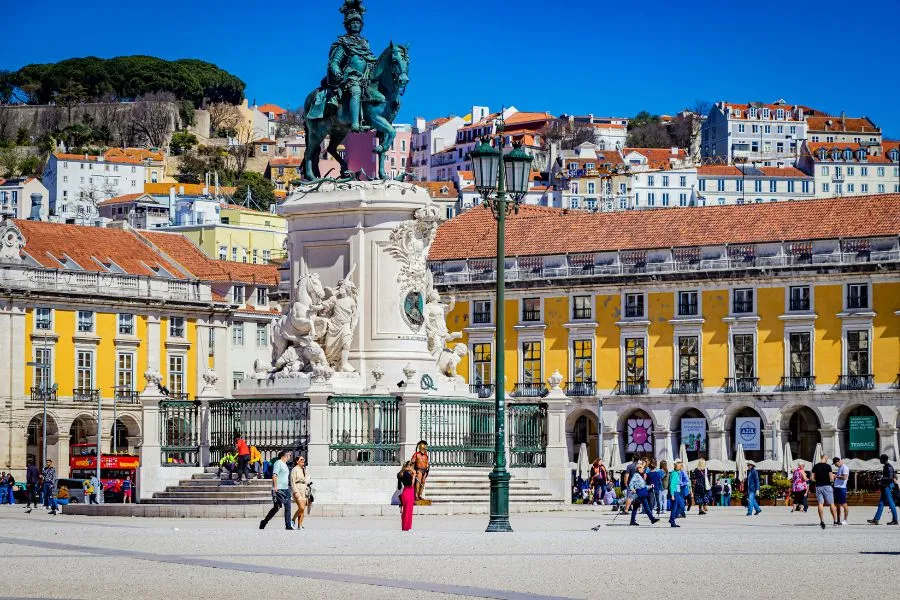Portugal has become an increasingly attractive destination for skilled professionals, entrepreneurs, and remote workers seeking a high quality of life, a favorable climate, and a stable economy. Lisbon, Porto, and other urban centers host booming technology and service sectors, while the country’s lifestyle and safety make it appealing for long-term settlement. For foreigners, a key question that arises is whether they can eventually secure permanent residency if they come to Portugal on a work visa. The answer is yes, provided you understand the country’s specific rules, timelines, and integration expectations.
Key Takeaways
Portugal’s Work Visa System
In Portugal, non-EU nationals must obtain a residence visa for work purposes before entering the country. These visas generally fall into two main categories: the Highly Qualified Activity Visa, for professionals in specialized sectors such as IT, engineering, or health, and the General Work Visa, which applies to other skilled or semi-skilled workers. Once in Portugal, these visas are converted into a residence permit valid for one to two years and renewable as long as employment continues.
Portugal also offers sector-specific permits for seasonal work, entrepreneurs, and remote workers under its Digital Nomad initiative. While not all of these options lead directly to permanent residency, they allow foreign nationals to establish legal residence and begin the clock toward long-term status.
Start Your Journey Toward Living Permanently in Portugal!
We connect you with trusted immigration experts who simplify the entire process — from paperwork to approval.
Eligibility Requirements for a Work Visa
To qualify for a work-based residence permit in Portugal, applicants generally need:
- A formal job offer from a Portuguese employer demonstrates that local candidates cannot easily fill the position.
- Proof that the offered salary meets minimum thresholds, which vary by permit type and sector.
- Relevant educational qualifications or professional experience for the role.
- Evidence of the ability to support oneself financially during the stay.
- Health insurance coverage and a clean criminal record.
While Portuguese language proficiency is not strictly required at the work visa stage, demonstrating basic knowledge can help integration and may simplify the transition to permanent residency later.
Also Read: Finland Seasonal Jobs: Who Can Apply and How Much You’ll Earn
Pathway from Work Visa to Permanent Residency
Non-EU residents can apply for permanent residency in Portugal after legally residing in the country for five years. The Portuguese authorities measure continuous residence based on valid permits, stable employment, and contributions to social security. Importantly, periods spent on short-term or tourist visas do not count toward these five years.
Work permit holders must maintain consistent employment or self-employment during this time. Gaps in legal residence or lapses in permit renewal may delay eligibility. The law also requires applicants to show some integration into Portuguese society, often through language skills, knowledge of the local culture, or participation in community life.
Applying for Permanent Residency
Once eligible, applicants submit their request to the Serviço de Estrangeiros e Fronteiras (SEF), Portugal’s immigration authority. The process typically includes:
- Providing documentation such as residence permits, proof of employment, tax and social security contributions, and evidence of accommodation.
- Demonstrating integration, which may include a basic language test or civic knowledge assessment.
- Undergoing verification of criminal records and other security checks.
- Awaiting approval, which may take several months depending on administrative workload.

Upon approval, permanent residents receive a residence card valid for five years, renewable indefinitely, granting the right to live, work, and access public services in Portugal.
Benefits of Permanent Residency in Portugal
Permanent residency offers numerous advantages. Holders are no longer tied to a single employer and can freely switch jobs or start a business. They also gain access to Portugal’s healthcare system, education benefits, and social security protections. Moreover, permanent residency simplifies travel within the Schengen Area and establishes a pathway toward citizenship, which typically requires six years of total legal residence.
For families, permanent residency allows sponsors to bring spouses and dependent children under family reunification rules, ensuring stability and continuity for the entire household.
Also Read: Can You Get Permanent Residency in the Netherlands Through a Work Visa?
Common Challenges and Mistakes
Several challenges can arise when pursuing PR in Portugal. Common pitfalls include failing to maintain continuous legal residence, neglecting permit renewals, or not contributing adequately to social security. Some applicants underestimate the importance of integration, particularly language acquisition, which can affect both the application for PR and later citizenship. Documentation errors, such as missing tax records or incomplete employment contracts, are also frequent causes of delays or rejections. Careful planning, record-keeping, and engagement with SEF are crucial to a successful application.
Conclusion
For foreign professionals, Portugal offers a practical and achievable route from work visa to permanent residency. By securing a valid work permit, maintaining continuous employment, contributing to the social security system, and integrating into Portuguese society, non-EU nationals can transform a temporary work stay into a stable, long-term life in Portugal.
With its blend of economic opportunity, cultural richness, and high quality of life, Portugal is not only a viable destination for temporary work but also a welcoming environment for those planning to settle permanently in Europe.





